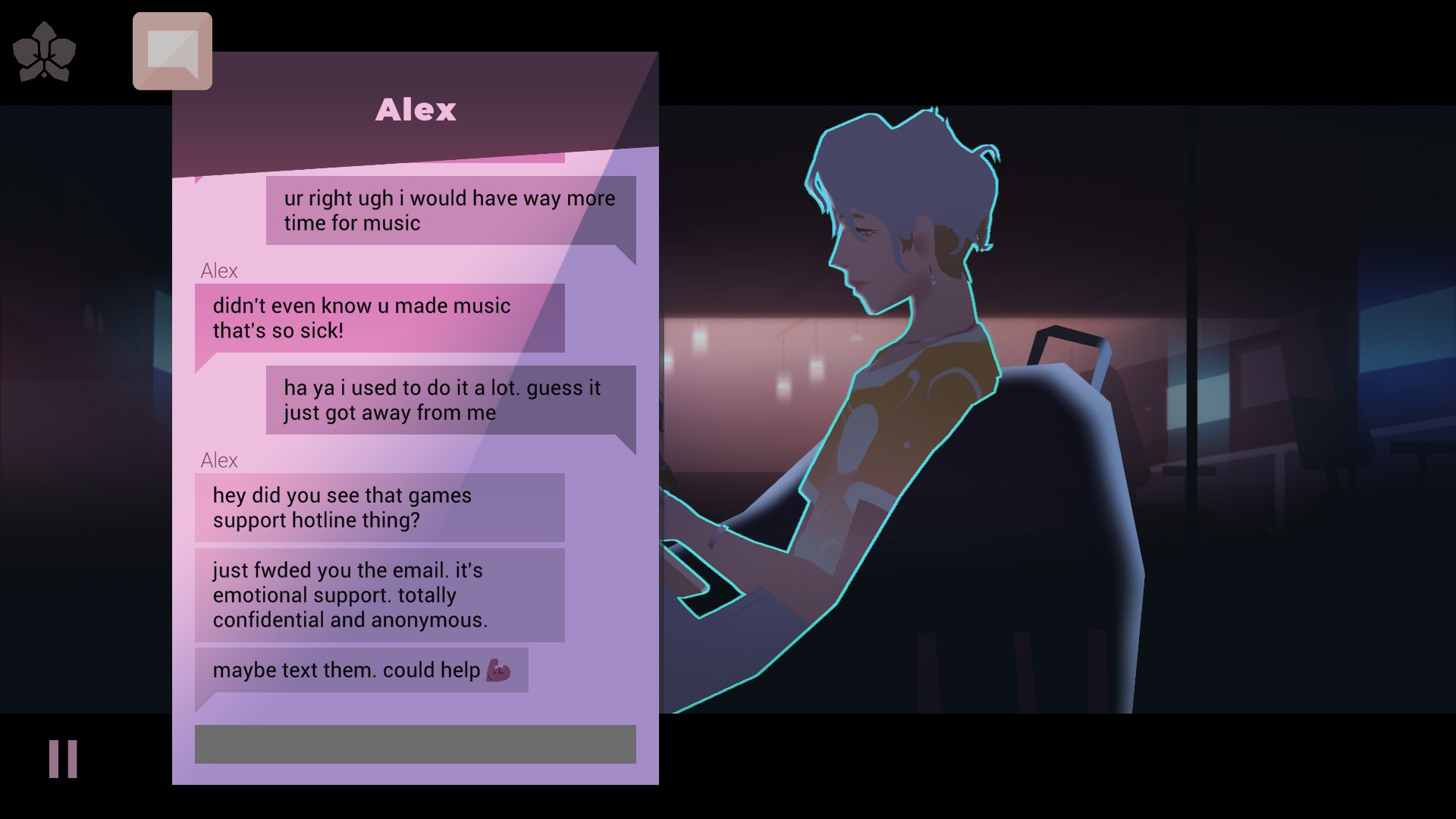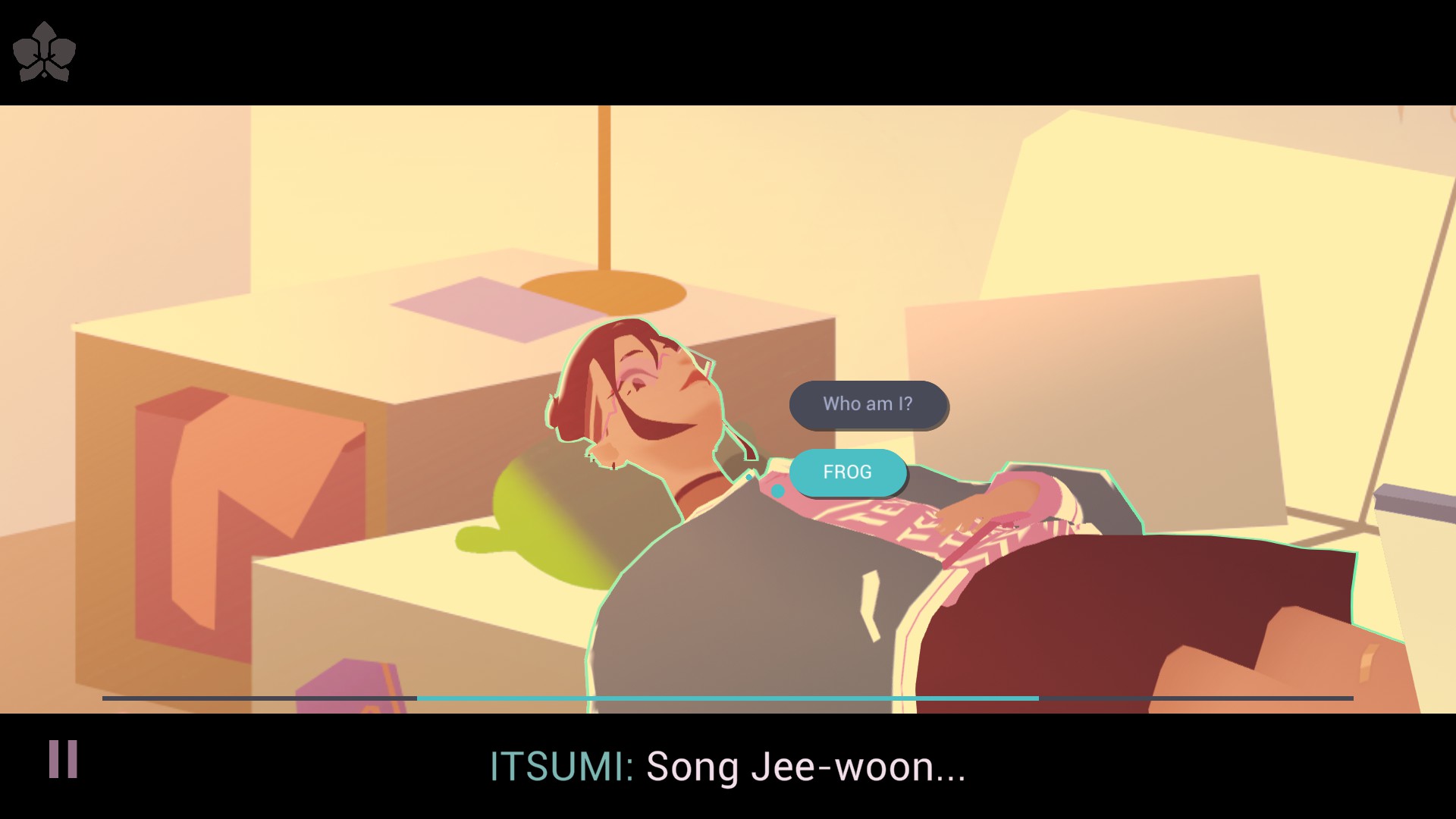Our Verdict
An uncomfortable blend of vulnerability and brand consumption.
PC Gamer's got your back
What is it? An interactive series about the ups and downs of being 20-something in LA, and the making-of the virtual band OFK
Expect to pay: $20/£18
Developer: Team OFK
Publisher: Team OFK
Reviewed on: Windows 10, Intel i5-10500H, 16GB, RTX 3060 (Laptop)
Multiplayer? No
Link: ofk.cool
We Are OFK's greatest flaws emerge from its hook: The game exists to launch OFK as a music project. It's the fictional origin story of a 'real' virtual band (think of Riot's K/DA musical group). The songs have to work as standalone commercial hits, leading to compromises that wouldn't be made for a regular OST, all while the plot itself goes out of its way to criticise such compromises as inauthentic. The characters are also a product that the game is trying to sell: It badly wants me to like them, support them, and project myself onto them.
We Are OFK is focused on the band's formation in a pastel-heavy LA, and features minimal interaction. Occasional dialogue options share insight into a character's thoughts or feelings, but don't affect anything outside of the moment. There'll be two different ways to call someone a jerk, or three different ways to be hyped about boba, but you're still stuck with "jerk" and "yay boba". The story is split into five episodes that are about an hour long each, and will release weekly along with a single and music video.
The first episode wraps up with its music video for Follow/Unfollow. The song debuted at last year's Game Awards over a video of the virtual crew, but here it's set over abstract minigames that turn it into a messy breakup song—playing phone breakout while trying not to drunk text an ex, and herding cats into a return box. These sections are more toy than game, adding visual excitement but not affecting anything.
It's so apparent that We Are OFK wants me to like its characters and to feel close to them that anything that lands wrong tends to land hard.
The trap of OFK being a real band that's trying to make relatable bops for all its audience means some songs seem to fit their episode's brief better than others. Fool's Gold, an ode to the human experience of insecurity and imposter syndrome, has no trouble also mapping to a specific character. Footsteps, on the other hand, really wants to lose you in the beat and its more technically involved music video—but is all style and no substance when tacked on to the end of an episode about grief and alienation.
The band are a team of quirky, chaotic 20-somethings. There's Itsumi, the anime-loving keyboardist with a habit of getting messy drunk and sending keyboard smashes in the group chat. Luca, the lead singer and overall space case, passionate as he is distractible. Carter, on audiovisual effects, a soft-spoken tech genius whose trains of thought are a little sideways. Lastly Jey, their producer, who seems like she's got her shit together but is trying to live to impossible standards.
We are OFK is focused entirely on the bandmates, their wants and needs, and the ways they mesh and conflict with each other. Most of the series is spent watching them talk to each other in-person or on their phones. They sext via coded emojis at a bar, vent text while bored at work, and check the group chat while on a date. This insight into characters' private spaces—including the way they think about what they say—should make me feel closer to them, but it has the opposite effect.
You know when someone tries to hype you up about this really funny thing that went down in their group chat, only to share a screenshot and—without the chemistry of being the people in the group, in that moment—it's just kind of embarrassing? I was talking about the goth cowboy #aesthetic in one of mine this morning, so I'm in no way immune to the asinine, but I also know that I can't explain bat-emoji-cowboy-emoji being funny to someone else. We Are OFK tries to recreate that dynamic, but more often than not it comes across as cringey.
There is something simultaneously too real and too fake about We Are OFK.
It's so apparent that We Are OFK wants me to like its characters and to feel close to them that anything that lands wrong tends to land hard. In the first episode, Luca compares a trivial choice about songs to Holocaust film Sophie's Choice—something he's only familiar with through cultural osmosis. It's meant to show off that he's hyperbolic and a little vapid, but I found it uncomfortably distasteful and hated that 'Sophie's kids thing' became a recurring in-joke between two characters over multiple episodes.
Given that We Are OFK's attempts to make me connect to its cast failed, it's not surprising that my favourite episode is one that slows things down by taking me away from the group, and features comparatively little texting. It's almost unplugged, except for some drunk-on-yoghurt texts from Itsumi, and quietly focuses on grief. The series' themes—vulnerability, conflicting needs—are best expressed in the one episode that departs most from format. It's notably the one where the music video feels the least integrated. Best episode, worst promotion of OFK.

There are cleverly composed scenes in We Are OFK. The presentation of dialogue choices is often framed as tiny visual gags, and there are funny and thoughtful callbacks across multiple episodes. When it breaks format, it does so with incredible playfulness and heart. The experience is just held back by the band.
There is something simultaneously too real and too fake about We Are OFK that always makes it feel like you're being sold something. There are details that feel there for someone else's catharsis, like when Luca and Itsumi vent about crunch and mismanagement in their games industry day jobs. Luca talks about wanting to make meaningful art that helps people, and is repeatedly reassured that he is, and it's hard to square that with the catchy but nothing-y dance pop the band are producing in-universe. It's thematically a pitch for an indie underdog among a plot that's textually about using industry connections.
The novelty here is in the hook: It's not just a game, it's a fictional biopic for a 'real' virtual band, who stream three times a week on Twitch, and hope to go on tour. If you put the novelty aside, there are more interesting stories about 20-somethings finding themselves. There's interactive fiction that uses text in more engaging ways, and games that aren't trying to sell you a relationship with their product.

An uncomfortable blend of vulnerability and brand consumption.


